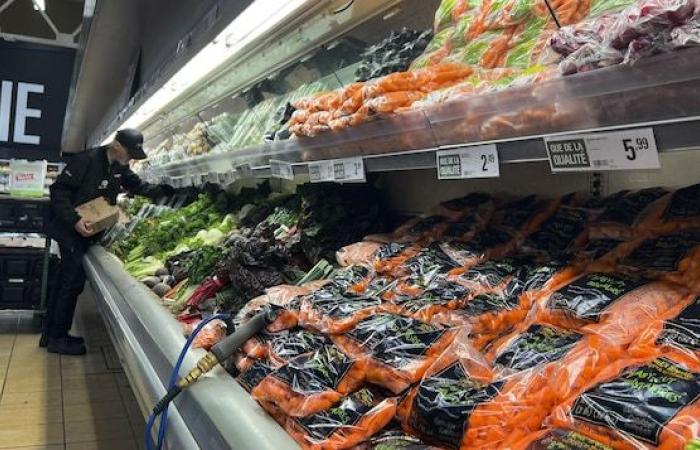The consumer price index (CPI) rose 1.8% year over year in December, compared to a 1.9% increase in November, according to Statistics Canada.
It was the price reductions for food purchased at restaurants and alcoholic beverages purchased in stores that contributed the most to this slowdown in inflation in the country in December, according to Statistics Canada.
However, if we exclude food from the calculation ofIPC, year-over-year inflation rose 2.1% in December.
In Quebec, the inflation rate rose to 1.6% in December, 0.1 percentage point higher than in November. In Ontario, however, it increased from 1.8% to 1.7% while it slowed from 2.6% to 2.3% in British Columbia during the same period.
The leave of TPS/HST granted in December by the Trudeau government until mid-February is no stranger to the slowdown in price growth nationally, notes Statistics Canada.
Among the main components, those most affected by the tax holiday were the following: food; alcoholic beverages, tobacco products and recreational cannabis; leisure, training and reading; as well as clothing and shoes
underlines the federal agency.
We are currently experiencing the GST/HST holiday which affected certain prices in December and this will continue until February. […] We risk seeing a reversal of this trend in March, when the furlough ends.
Start of widget. Skip the widget?End of widget. Return to start of widget?
As was to be expected, the prices of items affected by the holiday TPS/HST generally declined in December. Meals purchased at restaurants cost 1.6% less than in December 2023.
This is a first annual decline for the index, as well as its largest monthly decrease (-4.5%) in the context of the holiday. TPS/HST
note Statistics Canada analysts.
The same observation applies to alcoholic beverages purchased in stores, which fell, from one year to the next, by 1.3% in December, while they had increased by 1.9% in November. On a monthly basis, prices decreased by 4.1%.
The price of toys and leisure items, excluding video games, decreased by 7.2% in December 2024, compared to December 2025.
In addition, the children’s clothing price index decreased by 10.6% in December compared to the same month in 2023
adds Statistics Canada.
Start of widget. Skip the widget?End of widget. Return to start of widget?
Services and housing still on the rise
What continues to increase at a fairly rapid rate are services, to a certain extent, and in particular housing
however, underlines economist Steve Ambler in an interview with -.
Services are affected by the costs of producing goods. There is also a good fraction of costs which are salaries and salaries continue to increase,
underlines Mr. Ambler.
There is a slowdown in salary increases, but it is around 4% on an annual basis and therefore, it will continue to affect the price of services.
Housing prices remain high across the country. In December, year-over-year housing prices increased 4.5% compared to 4.6% in November.
Rent prices, meanwhile, slowed by 7.1% year-over-year in December 2024 compared to 7.7% in November of the same year.
Rent prices have increased by 22.1% since December 2021.
At the same time, the mortgage interest cost index recorded a slowdown in growth to 16e consecutive month. The index increased 11.7% year-over-year in December 2024, the smallest increase since October 2022 (+11.4%), when interest rates continued to rise
also underlines the federal agency.
The Bank of Canada will announce its decision on its key rate on January 29. It lowered its key rate by 50 basis points on December 11 to establish it at 3.25%.
Inflation was 1.8% on an annual basis in December in Canada.
Photo : - / Ivanoh Demers
The shadow of American tariffs
But a lot of things could change quickly in the country if the United States imposes tariffs of 25% on Canadian products starting June 1.is February, as President Donald Trump announced yesterday.
There is a lot of uncertainty because of this.
underlines Steve Ambler, who believes that Canada is not currently in the best position to negotiate with its powerful neighbor.
It is certain that there could be negotiations between now and the 1is February, but the federal government is a little slow and Parliament is prorogued. I don’t know if there will really be very active negotiations.
If it comes true, [l’imposition des tarifs] it will have a big negative effect on our exports and from there on economic activity in general
he warns, recalling that if Canada, for its part, imposes similar tariffs on American products, there will be a significant impact on inflation on our side of the border.
When it comes to the idea of suspending our energy exports to the United States, Steve Ambler sees nothing less a disaster for the Canadian economy
. We are talking about more than a recession, almost a depression
believes Mr. Ambler.






